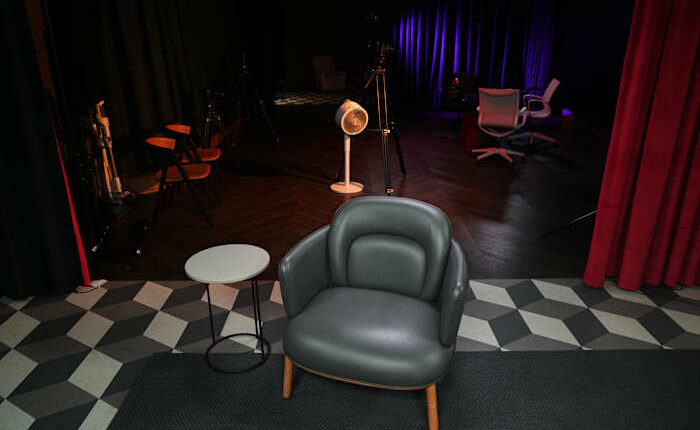Share this @internewscast.com

ANKARA – Turkish journalist Fatih Altayli has been imprisoned, but his reporting remains defiantly alive.
Even while in prison, the seasoned journalist shares news and insightful political analysis on his YouTube channel through letters delivered via his lawyers. These letters are voiced by an assistant, in an initiative peers call “prison journalism.”
“Fatih Altayli has innovated journalism: prison journalism,” remarked fellow journalist Murat Yetkin on his news platform, Yetkin Report. “Through visits by lawmakers, correspondence, and his legal team, he continues his journalistic work, providing not only internal information but also perspectives on the external world.”
Altayli’s YouTube show, which garners hundreds of thousands of views each day, led to his arrest in June due to accusations of threatening President Recep Tayyip Erdogan, a claim he vehemently contests. Some critics suggest that this move, part of a larger crackdown on dissent, seeks to mute a vocal government critic.
Prosecutors argue that Altayli has committed the crime of issuing and spreading a threat publicly under Turkish law, seeking at least a five-year prison term. The initial trial hearing is scheduled for Friday.
The allegations are based on remarks he made on his YouTube show, “Fatih Altayli Comments,” discussing a recent poll where over 70% of respondents reportedly opposed Erdogan’s indefinite presidency, a leader in power for over 20 years.
On the show, Altayli said he wasn’t surprised by the results of the poll and that the Turkish people preferred checks on authority.
“Consider this nation’s history,” he stated. “This is a nation that disposed of a sultan they disliked or didn’t want. There have been several Ottoman sultans who were assassinated, strangled, or had their deaths appear as suicide.”
The 63-year-old journalist, columnist and television presenter whose career spans decades, was detained from his home on June 21, a day after the comment was aired – and charged with threatening the president.
The Istanbul Bar Association described the detention order against Altayli as unlawful, insisting that his comment did not constitute a “threat” and should be considered as freedom of expression.
The government-run Department for Combating Disinformation has responded to criticism over Altayli’s arrest, insisting that issuing a threat is a criminal offense and denouncing what it described as a coordinated campaign to manipulate public opinion and present the alleged threat as freedom of expression.
Altayli has since turned his cell in the notorious high-security Silivri prison near Istanbul — now renamed Marmara Prison Campus — into a newsroom of sorts. He often writes commentary critical of the political climate that led to his imprisonment and shares news he gathers from a steady stream of visitors, including politicians and legal advisers.
The YouTube program, now rebranded as “Fatih Altayli Cannot Comment,” opens with the journalist’s empty chair. His assistant, Emre Acar, reads Altayli’s letter out loud before a guest commentator, which has included journalists, politicians, academicians, actors and musicians, temporarily occupies the seat and delivers his or her views in a show of support.
Altayli’s written commentaries, meanwhile, continue to be published on his personal website.
Yetkin said many had assumed that because of his privileged lifestyle, Altayli would bow to pressure.
“But Fatih didn’t bow. I won’t say he’s maintained his line; he’s elevated it. In my view, he’s standing firmer than before,” Yetkin wrote.
Altayli’s “prison journalism” has included an interview with fellow inmate Ekrem Imamoglu, the mayor of Istanbul, who was arrested in March on corruption charges. That interview was conducted through written questions and answers exchanged through their lawyers. Altayli also gives news of other prominent prisoners at Silivri.
With a majority of mainstream media in Turkey owned by pro-government businesses or directly controlled by the government, many independent journalists have lost their jobs and have turned to YouTube for uncensored reporting.
A total of 17 journalists and other media sector workers, including Altayli, are currently behind bars, according to the Turkish Journalists’ Syndicate. The government insists the journalists face prosecution for criminal acts, not for their journalistic work.
Copyright 2025 The Associated Press. All rights reserved. This material may not be published, broadcast, rewritten or redistributed without permission.










